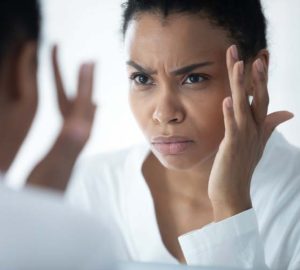We’ve all heard the figures: a whopping half of all American marriages end in divorce. Could it be accurate? Actually, it is. According to the American Psychological Association, between 40 and 50 percent of marriages end in divorce. So what can couples do to beat the odds? Couples counseling might offer a good place to start.
[dealing with life]
Counseling can help couples navigate major transitions in their lives, like becoming new parents, changing careers, dealing with illness or entering retirement, explains Rachel Hasper, a licensed professional counselor in Webster Groves. “Counseling can certainly be necessary in times of crisis, such as infidelity, addiction, illness, or tragedy and loss. Two people sharing a life can count on conflict,” she says. “If you feel distant and lonely even when you’re together, if you’ve lost intimacy or you argue about the same problem again and again, if you’re struggling to handle major life events, or if you generally carry feelings of anger and resentment toward each other, counseling can help couples heal hurts and find common ground.” Hasper adds that if both partners aren’t willing to attend therapy, one of them seeking help and working on change can be enough to shift dynamics and improve the relationship.
“It’s helpful to do periodic ‘checkups,’ even when things seem to be going well,” adds Priscilla Bass, Ph.D., a therapist at Life Transitions Counseling. “We tend to stifle conflicts and leave things to simmer under the surface. You don’t want to wait until the problems are too big. Marriage takes practice and commitment from both partners.” She adds that one situation in which couples counseling is not the recommended solution is when there is abuse in the relationship. “Sometimes people have to work on themselves before they can work on the relationship.”
[a (very) personal decision]
Finding a therapist both parties can be comfortable with is the first step, the counselors agree. After all, it’s hard to share your deepest thoughts and feelings with another person, let alone a stranger. Bass says couples counseling will be uncomfortable at times, but it also can be fun. “Counseling is an opportunity to uncover things you didn’t know about yourself and your partner,” she says. “It can be very positive; you should expect to be challenged and to look at old or unhealthy behaviors that aren’t working in your relationship. It can be hard to see these things on your own. Seeking help can be liberating and freeing.”
Hasper explains that a third party brings the often-needed neutral element to conflicts. “Counseling helps facilitate difficult conversations and assist couples in finding strategies and solutions to reconnect, build friendship and enjoy long-term marital satisfaction,” she says.
[lasting benefits]
Both Hasper and Bass agree that counseling can offer long-term help, even if the marriage ultimately ends. “Each person can gain insight about their own behaviors, improve how they manage life stressors, and learn tools to communicate and handle conflict in healthy ways—skills that will serve them in relationships with children, family, friends, coworkers and themselves,” Hasper says.
“Counseling helps to reduce conflict, which is really important when a marriage ends,” adds Bass. “It also helps individuals deal with the loss of their marriage and shared dreams.”
[the years take their toll]
According to Hasper, the natural tendency is for relationships to worsen over time. “To keep a marriage strong, there needs to be efforts to nurture each other and the relationship,” she says. “Counseling can be a great investment toward building empathy, optimism and marital satisfaction.”
Therapy is shown to be more effective for couples who take personal responsibility for their part of the relationship troubles and make changes regardless of whether their partner chooses to do so, Hasper says. “Studies show that couples who learn to handle conflict constructively and seek help earlier have higher likelihoods that counseling will be productive and beneficial,” she says.
Couples need to approach counseling with a completely open mind, Bass adds. “Those who think, I don’t know why I’m here are not willing to look at themselves,” she says. “Or, they expect the counselor to take a side and change the other person. I tell couples that neither person is wrong, but the way they are currently dealing with the conflict isn’t working.”
By Sara Savat








